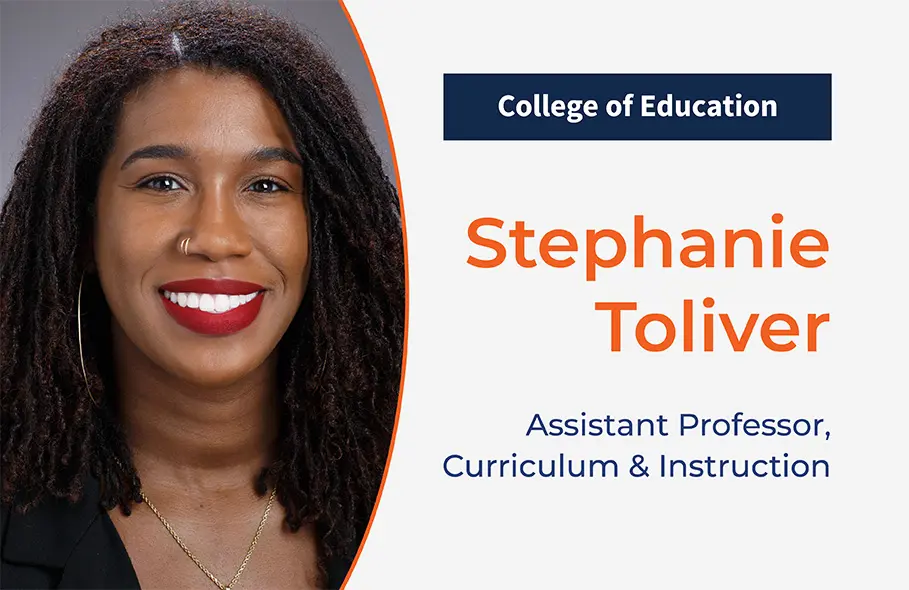Toliver: The Dangers of Erasing Black Voices
by Stephanie R. Toliver for Visible Magazine / Oct 1, 2024

As a literacy scholar, I see this racist violence as representative of a larger issue in this society: namely, the repercussions of a system in which the stories—and therefore, inner lives—of Black people are consistently censored. When I consider the implications of suppressing Black voices and restricting access to Black narratives, I see a direct connection to this kind of brutality. This feels particularly apparent to me on the heels of Banned Books Week.
The incident at Gettysburg is what happens when ignorance and hatred are allowed to thrive. It’s what happens when we prevent young people from learning about the very injustices they should confront. It’s what happens when the realities of Black lives are considered too divisive to discuss. In the culture of book bans, we have created generations of people who are ill-equipped to see the humanity of Black people and ill-prepared to consider how antiblackness influences their actions.
In recent years, the push to ban books has intensified. PEN America reported that their preliminary investigation found more than 10,000 instances of book banning in the 2033-2024 school year, a staggering figure that nearly tripled the number of bans found in the previous year.
While many of the reported bans were found in Florida and Iowa—states with laws that restrict which books can be kept in public school libraries and what subjects can be taught in schools— book bans are a nationwide issue. Some Democratic-leaning states have pushed back on book ban in legislation, but research suggests book bans are often used in Republican-leaning areas as political ploys to galvanize conservative voters. In other words, in areas where Republican support was precarious, people used book bans to get folks riled up, to give potential voters something to believe in. But what are these beliefs?
Of the books banned, stories about people of color and LGBTQ+ people are overwhelmingly represented, which is a trend that’s persisted for decades. Children’s books and young adult literature about social movements are frequently challenged. Literature written by and about Black people have been banned in more than 30 states. The only thing these bans communicate is a desire to prioritize stories that center whiteness and exclude any story that challenges the status quo. They suggest that hiding the racist realities of this world means those realities don’t exist.
But they do. The Gettysburg College incident is a real-life example.
And that’s why we need books like Angie Thomas’ “The Hate U Give,” Toni Morrison’s “The Bluest Eye,” and Walter Dean Myers’ “Monster,” because they challenge readers to confront uncomfortable truths about racism and anti-Black oppression. They encourage empathy and help people to engage in dialogue about equity and social justice. When texts like these are removed from the curriculum, pulled from classroom and library shelves, and taken from the hands of potential readers, we send a message that conversations about racism and the mattering of Black lives are too dangerous to have, too taboo to discuss. This denial does not lead to safety. Instead, it leads to ignorance which can later manifest as violence.
Of course, the student at Gettysburg College could have experienced an array of external influences that affected his decision to engage in a hate crime. Still, I believe that stories have the ability to change us, to make us think, to help us develop empathy. Stories have the ability to change us for the better. Because stories are powerful, getting at the root of antiblack violence demands the radical act of reading widely, critically, and courageously. It requires that we collectively ensure that people of all ages have access to stories that show the joy, pain and ordinariness of Black life.
In the aftermath of racist violence, we have to make a choice: continue down a path of denial aided by censorship and book bans, or forge new, liberatory paths where we might learn to co-exist with one another in a pluralistic democracy.
As we stand at this fork in the road, I hope we can think about the society we intend to build. Are we willing to accept a future where ignorance reigns, where the violence of words translates to physical acts? Or, are we committed to building educational systems that value the humanity of all people, where the stories of our most minoritized citizens are read and celebrated?
I truly hope it’s the latter.
Stephanie R. Toliver is an assistant professor of Curriculum & Instruction at the University of Illinois, Urbana-Champaign and a Public Voices Fellow with the OpEd Project.
